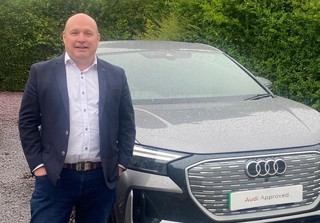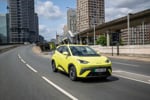Almost two-thirds (65%) of fleets have admitted to delaying their plans to transition to electric vans due to the energy crisis, new research suggests.
Looking at factors that will influence greater adoption of electric vehicles (EVs) before the 2030 ban on sales of new petrol and diesel vehicles, The Fleet Outlook Report from the 360 Media Group reveals how sustainability has become a crucial consideration for UK fleets.
Some 400 UK fleet interviews were carried out for the report in Q1 2023. The interviews collated buyer opinions on their plans, goals, and future requirements.
The most significant issues for van fleet decision-makers, according to the report, are the planning, implementing, and charging of EVs. That said, 22% of those asked said they plan to add electric vans to their fleet in the next 12 months.
Almost three-quarters (71%) of van fleets also plan to invest in depot charge points in 2023. This number has remained consistent for three years, with ownership of premises, cost and driver resistance cited as investment barriers.
Writing in Cox Automotive’s latest quarterly insight, AutoFocus, co-founder of 360 Media Group Ian Richardson said there had been, generally speaking, “impressive” uptake in EV sales over the past three years but stressed that concerns about affordability and charging infrastructure show no sign of abating.
Philip Nothard, Cox Automotive’s insight and strategy director, said: “Fleets continue to lead the way in the decarbonisation of road transport.
“It’s no surprise that many are concerned about charging infrastructure. On the part of the Government and OEMs, much more needs to be done to educate them and move more fleets further along the path to EV adoption.”
Electric LCVs now make up 7% of all new registrations, while the SMMT’s latest estimate says that figure will rise to 7.3% by the end of 2023.
The report also says that confidence in the vehicle supply chain returning to normality is encouraging, with 48% of fleets expecting to see an improvement in the coming year.
Furthermore, with a UK van market exceeding four million vehicles, almost half of businesses (49%) are confident that the number of LCVs they operate will increase in the next 12 months.
Richardson said: “Fleets have conceded that they must do more to engage with van drivers and find adequate charging options.
“With 30% of fleets not intending to invest in workplace charging, the driver requires a local charging solution. 40% of drivers cannot or will not charge at home, which makes working with local authorities to access reliably safe charging paramount.”
With just 51% of fleets adopting the Total Cost of Ownership (TCO) model for vehicle purchasing, the hard yards for EV adoption are up ahead as fleets need help to justify higher list prices, according to Richardson.
Nothard said: “The report’s findings are very encouraging for anyone eager to see greater EV adoption.
“The new entrants, in terms of EV brands, that are soon set to make a footprint in the UK market should help make decisions about scaling up easier for fleets.”
Fleet adoption of electric cars
The report also found that fleets predict that a little more than a fifth (23%) of their new car orders will be electric. However, 59% of fleets offer electric cars on their fleet choice list. The option to trade up is available in half of all fleets surveyed.
Furthermore, 48% of fleets being “very likely” to introduce salary sacrifice Schemes in the future and 47% of fleets are “very likely” to introduce EV car subscriptions in the future.
























Login to comment
Comments
No comments have been made yet.